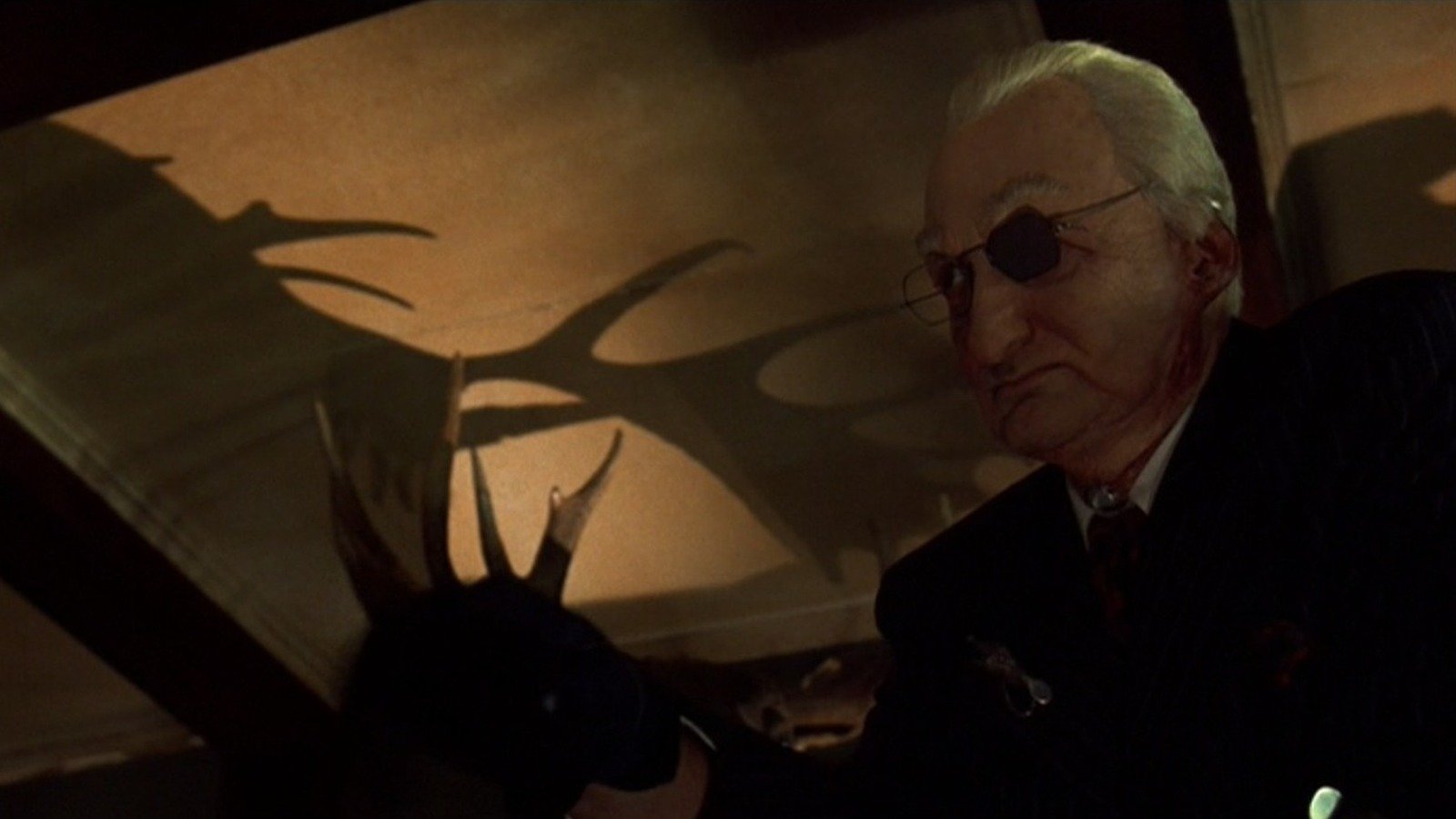Horror Reboot Vs. Stephen King: A Box Office Showdown?

Table of Contents
The Rise of Horror Reboots
The horror reboot phenomenon is undeniable. But why are studios so keen on revisiting familiar frights? The answer lies in a potent combination of factors.
Nostalgia and Familiarity
Nostalgia is a powerful engine, and for studios, leveraging pre-existing fanbases offers significant advantages. Successful examples like the 2018 Halloween reboot and the 2022 Scream sequel prove this point.
- Increased Marketing Potential: A built-in fanbase requires less marketing investment to generate buzz. The name recognition alone attracts audiences.
- Lower Production Risk: Adapting a known property carries inherently less risk than creating an entirely original horror concept. Audiences are more likely to trust a familiar title.
- Franchise Expansion Potential: A successful reboot can easily spawn sequels, prequels, and even spin-offs, maximizing profitability.
However, reboots are not without their pitfalls. Significant deviations from the source material can alienate original fans, leading to negative reviews and ultimately impacting box office performance.
Modernizing Classic Horror
Reboots often aim to update classic horror tropes for contemporary audiences. This involves injecting new elements while retaining the core essence of the original.
- Successful Updates: Halloween (2018) effectively modernized the slasher formula with improved visuals and a more nuanced portrayal of Michael Myers. Social commentary can also be effectively incorporated, providing a fresh perspective.
- Unsuccessful Updates: Some reboots falter by sacrificing genuine scares for excessive social messaging or by suffering from poor pacing and underdeveloped characters, leading to critical and commercial failure.
Box Office Performance of Recent Reboots
Recent horror reboots have demonstrated a mixed bag at the box office. While some have achieved massive financial success, others have underperformed, highlighting the inherent risks.
- Budget vs. Box Office Gross: Analyzing the budget compared to the final box office gross reveals the profitability (or lack thereof) of each project. A high budget coupled with poor box office performance indicates a failed investment.
- Critical Reception: Critical reviews can significantly influence word-of-mouth marketing, impacting box office numbers. Positive reviews can drive audiences, while negative reviews can dampen enthusiasm.
- Marketing Campaign Effectiveness: A cleverly crafted marketing campaign can make or break a horror reboot. Effective campaigns generate buzz and excitement, leading to higher ticket sales.
The Enduring Power of Stephen King Adaptations
Stephen King’s enduring legacy in the horror genre is undeniable, and his works have consistently provided rich source material for successful film adaptations.
King's Adaptability
King's prolific output and diverse range of stories provide endless opportunities for adaptation. His ability to tap into universal fears and anxieties ensures that his tales resonate with audiences across generations.
- Successful Adaptations Across Subgenres: From the supernatural horror of It to the psychological thriller of Misery and the prison drama of The Shawshank Redemption, King’s versatility has proven itself time and again. His stories are inherently dramatic and suspenseful, providing a solid foundation for captivating films.
The King Fanbase
Stephen King boasts a fiercely loyal and extensive fanbase that plays a crucial role in the box office success of his adaptations.
- Long-Term Brand Loyalty: Decades of dedicated readers eagerly await new adaptations of their favorite novels and short stories. This inherent audience creates a strong base for box office success.
- Pre-Built Audience Anticipation: The announcement of a new King adaptation generates automatic excitement and anticipation among fans, influencing marketing strategies and box office projections.
- Active Online Communities: Online communities dedicated to King's works actively promote upcoming adaptations, generating buzz and influencing viewing decisions.
Recent King Adaptations' Box Office Success
Recent Stephen King adaptations have enjoyed varying degrees of success at the box office. While some have achieved massive success, others highlight the challenges of translating complex narratives to the screen.
- Budget vs. Gross: Analyzing the financial performance of recent adaptations reveals insights into the profitability of King adaptations. A strong ROI indicates successful adaptation and marketing strategies.
- Critical Acclaim vs. Commercial Success: Some adaptations gain critical acclaim but fail to translate that into significant box office success, while others prove to be commercially successful without necessarily winning critical praise.
- Factors Contributing to Failure: Analyzing failures helps understand challenges in adapting certain stories, the impact of casting choices, or directorial decisions that alienated audiences or critics.
Direct Comparison: Reboots vs. King
To gain a clearer understanding of which type of horror film performs better, a direct comparison is necessary.
Budget and ROI
A direct comparison of average budgets and return on investment (ROI) for both horror reboots and Stephen King adaptations will reveal which type generally offers better financial returns for studios. This analysis should include a broad sample to account for varying production scales.
Critical Acclaim
Comparing critical reception, using metrics like Rotten Tomatoes scores and Metacritic ratings, provides insight into the quality and impact of each type of film. Analyzing review patterns can uncover trends and explain critical successes or failures.
Audience Reception
Analyzing audience reviews (e.g., IMDb ratings) and social media sentiment provides a valuable perspective on audience preferences and reactions to both horror reboots and Stephen King adaptations. This data can provide insights into the factors driving audience satisfaction (or dissatisfaction).
Conclusion
Our analysis reveals a compelling narrative: while horror reboots offer the potential for significant financial gains by leveraging pre-existing IP and nostalgia, their success hinges heavily on faithful adaptation and effective modernization. Stephen King adaptations, on the other hand, benefit from a massive, loyal fanbase and the inherent dramatic power of his storytelling, leading to consistent box office success despite occasional critical inconsistencies. Ultimately, both approaches offer viable paths to success in the horror genre, with each presenting unique risks and rewards.
Prediction: We predict that both horror reboots and Stephen King adaptations will continue to dominate the horror landscape. However, the success of each will depend on the quality of the adaptation and the effectiveness of marketing campaigns. Studios will likely continue to explore both avenues, balancing the relatively safer bet of known properties with the potential for massive returns from new King adaptations.
Call to Action: Which do you prefer: the thrill of a fresh horror reboot or the chilling familiarity of a new Stephen King movie? Share your thoughts and preferences using #HorrorReboot #StephenKingMovies #BoxOfficeBattle #HorrorFilm #MovieAdaptation!

Featured Posts
-
 Singapore Election Assessing The Political Landscape
May 04, 2025
Singapore Election Assessing The Political Landscape
May 04, 2025 -
 Unexpected Halt Britains Got Talents Live Show Interrupted
May 04, 2025
Unexpected Halt Britains Got Talents Live Show Interrupted
May 04, 2025 -
 Prevenir Les Actions Insensees La Solution Radicale Metaphore De La Guillotine
May 04, 2025
Prevenir Les Actions Insensees La Solution Radicale Metaphore De La Guillotine
May 04, 2025 -
 Charles Barkleys Playoff Outlook A Look At His Oilers And Leafs Predictions
May 04, 2025
Charles Barkleys Playoff Outlook A Look At His Oilers And Leafs Predictions
May 04, 2025 -
 Dzhidzhi Khadid Prokommentirovala Svoy Roman S Kuperom
May 04, 2025
Dzhidzhi Khadid Prokommentirovala Svoy Roman S Kuperom
May 04, 2025
